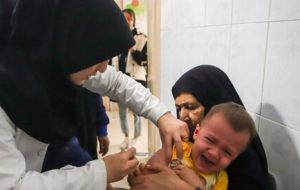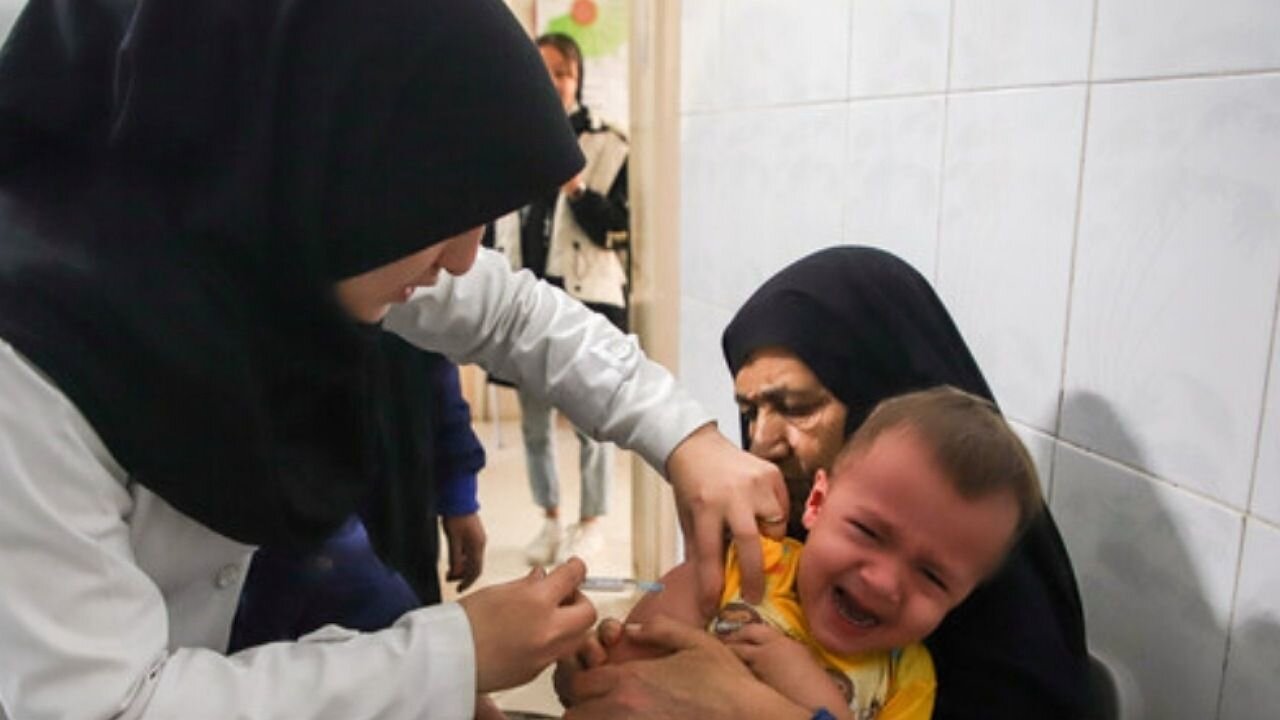Rotavirus, pneumococcal vaccinations cover more provinces
TEHRAN – The national vaccination program against rotavirus and pneumococcal started on Sunday in seven more provinces of the country. The seven provinces are Khorasan Razavi, South Khorasan, North Khorasan, Sistan-Baluchestan, Hormozgan, Bushehr, Khuzestan, and Ilam, IRNA quoted deputy health minister Hassan Farshidi as saying. Rotavirus is the most common cause of diarrhea in infants,


TEHRAN – The national vaccination program against rotavirus and pneumococcal started on Sunday in seven more provinces of the country.
The seven provinces are Khorasan Razavi, South Khorasan, North Khorasan, Sistan-Baluchestan, Hormozgan, Bushehr, Khuzestan, and Ilam, IRNA quoted deputy health minister Hassan Farshidi as saying.
Rotavirus is the most common cause of diarrhea in infants, under the age of one, and their hospitalization, the official noted.
Annual rotavirus vaccination prevents the hospitalization of over 50,000 individuals. It will also prevent some 1,200 deaths caused by severe cases of diarrhea.
High-risk regions
On April 13, Pedram Pak-Aein, an official with the health ministry said, “The vaccination program against pneumococcal and rotavirus will focus on tropical and southern regions of the country.”
“The immunization initiative will begin in the coming weeks in provinces that are most vulnerable to these diseases,” IRNA quoted Pak-Aein as saying.
Rotavirus vaccination program will target tropical, southern, and southeastern provinces, while pneumococcal vaccination will be extended to southern provinces as well, he added.
The nationwide implementation of the vaccination program will commence as soon as needed pneumococcal and rotavirus vaccines are provided, Pak-Aein further noted.
The vaccination program to combat pneumococcal and rotavirus kicked off in February after being missed from the immunization schedule for a decade.
The program was officially launched in the city of Bandar Khamir, southern Hormozgan province, IRNA reported.
On February 19, Pak-Aein said, “The vaccination program to combat pneumococcal has been added to the country’s immunization program.”
It will be implemented in several phases, with the priority given to underdeveloped areas, he added.
Some 3.5 million doses of pneumococcal vaccine have been imported. In the first phase, the vaccines will be distributed in deprived areas of the southern provinces of the country, the official explained.
Pak-Aein went on to say that vaccination against rotavirus, started on February 20, aims to prevent the hospitalization of 10,000 children per year.
Knowledge-based companies and domestic manufacturers will soon produce both pneumococcal and rotavirus vaccines and present them to the market within the next few months, he added.
Vaccination against rotavirus, pneumococcal
The national vaccination plan aiming to combat rotavirus and pneumococcal, which most notably cause diarrhea and pneumonia respectively, was said to be added to the country’s immunization program on January 21.
Rotavirus can cause severe watery diarrhea, vomiting, fever, and abdominal pain. Children who get rotavirus disease can become dehydrated and may need to be hospitalized.
Babies can get three doses of vaccine at the 2nd, 4th, and 6th months of life. The vaccine is administered by putting drops in the child’s mouth, IRNA quoted Mohsen Zahraei, the head of the preventable diseases department of the Ministry of Health, as saying.
The pneumococcal vaccine helps protect against some types of bacterial infections that can cause serious illnesses like meningitis (an infection in the brain and spinal cord) sepsis (a life-threatening reaction to an infection) pneumonia (an infection in the lungs).
Zahraei further noted that pneumococcal vaccine can be injected when babies are 2, 4, and 12 months old.
“We hope to be able to develop these two vaccines soon. Once the vaccines pass the quality control trials, and obtain the Food and Drug Organization approval, we will be able to use the domestic products in the national vaccination program,” Zahraei said.
“Since the development of a vaccine is a complex process and takes a lot of time, the vaccines are imported now.
Annual vaccination worldwide prevents the death of two and a half million children, which shows the very high effectiveness of vaccines,” he added.
MT/MG
